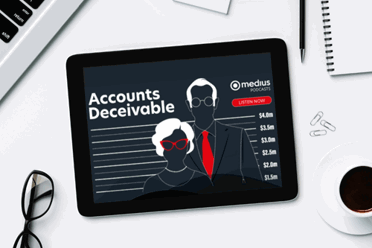Invoice fraud: guide to prevention & detection
In today's fast-paced business environment, the threat of invoice fraud looms large. With the increasing reliance on digital transactions and communications, businesses are more vulnerable than ever. Automation and accounts payable software solutions, like those offered by Medius, are at the forefront of combating these challenges, ensuring that companies can operate securely and efficiently.


 Unusual vendor information
Unusual vendor information



